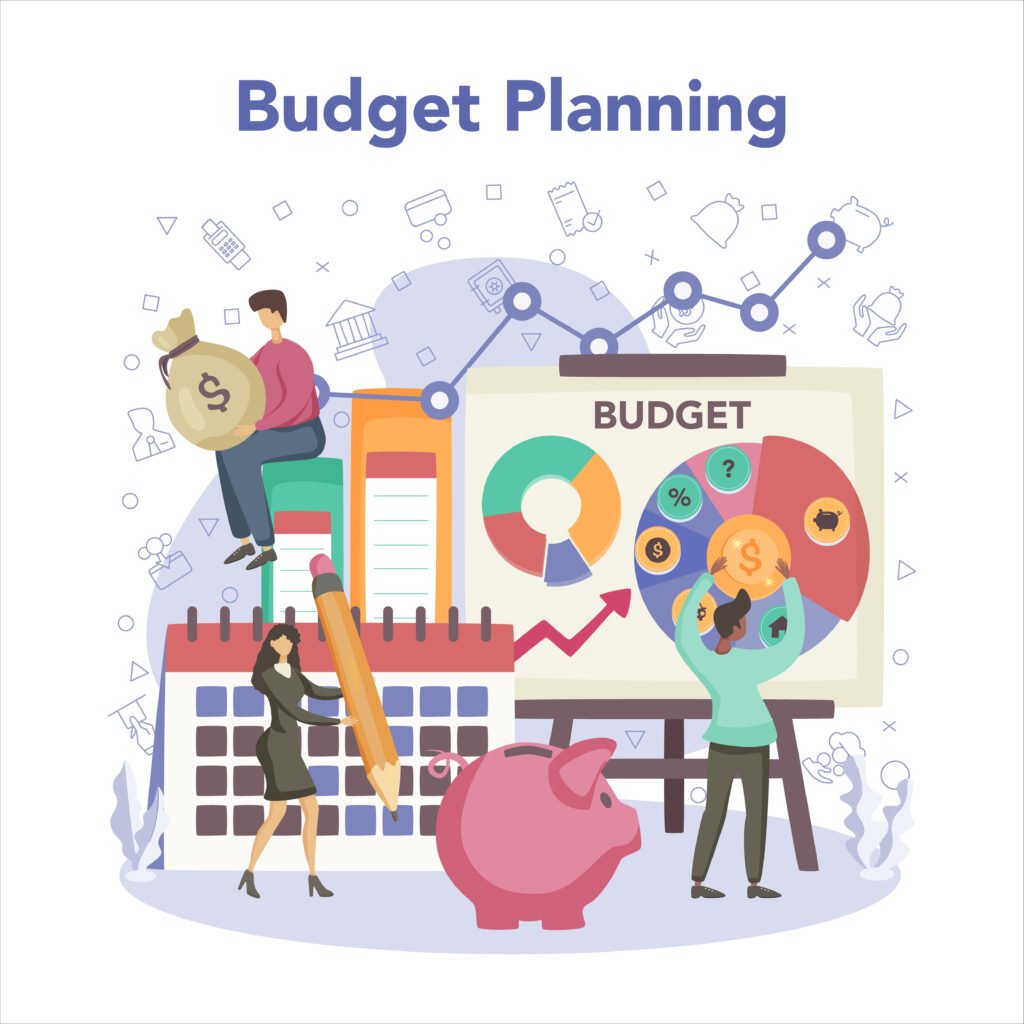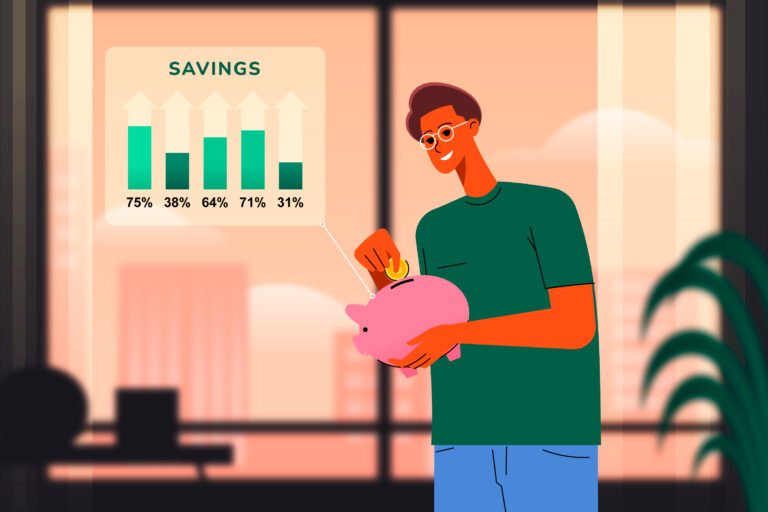Why Weekly Budgeting Changed Everything
Weekly Budgeting isn’t new to me — I’ve tried everything from budgeting apps to strict monthly spreadsheets. But no matter how disciplined I tried to be, something was always off. Either I was overspending early in the month or scrambling to make it to payday. That cycle of financial stress felt endless — until I discovered weekly budgeting.
This simple shift in how I managed money transformed not only my finances but also my mindset. In just three months, I cut my expenses by nearly 30% — without giving up the things I love. Here’s how breaking down my budget week by week helped me gain total control over my spending.

Table of Contents
🔄 The Turning Point: From Overspending to Financial Clarity
Like most people, I thought budgeting monthly was the most practical way to go. But what I didn’t realize was how easily I lost track of spending by the second or third week. Bills would be paid, but daily expenses — groceries, takeout, small splurges — would quietly snowball. I’d convince myself I had room to spend, only to end up short or dipping into savings by the end of the month.
The breaking point came when I reviewed my spending and realized I wasn’t just going over budget — I was completely disconnected from it.
🚫 Why Monthly Budgets Weren’t Working for Me
The main problem? A monthly budget gave me too much room to “wing it.” It felt like trying to portion out a giant pizza with no slices marked — by the end, I always took more than I should have.
Monthly budgeting made it harder to:
- Track short-term habits and trends
- Catch overspending early
- Stay emotionally engaged with my financial goals
That’s when I decided to try something different — something more granular, more responsive, and easier to stick with: weekly budgeting.
The Weekly Budgeting Method Explained
After months of frustration with my finances, I realized I didn’t need a stricter budget — I needed a smarter one. That’s where weekly budgeting came in. By zooming in on just 7 days at a time, I could make sharper decisions, stay on track, and actually see real progress.
Let’s break down exactly what weekly budgeting is, how it compares to other methods, and who will benefit from it the most.
📒 What Is Weekly Budgeting?
Weekly budgeting is the practice of planning your income and expenses one week at a time, instead of trying to predict and control a full month’s worth of spending.
Rather than assigning one large pool of money to cover all your expenses for 30 days, you divide that amount into four or five manageable weekly chunks. This gives you:
- More flexibility
- Faster feedback on your habits
- Easier adjustments if something unexpected comes up
Think of it like meal prepping — instead of guessing how you’ll feel all month, you plan for what you need just for this week.
🔍 How It Differs From Monthly or Bi-Weekly Budgets
| Feature | Monthly Budgeting | Bi-Weekly Budgeting | Weekly Budgeting |
| Timeframe | 30-31 days | Every 2 weeks | 7 days |
| Risk of Overspending | High — hard to predict weeks 3-4 | Moderate | Low — you can course-correct quickly |
| Flexibility | Low | Medium | High |
| Feedback Cycle | Slow — 1x/month | Every 2 weeks | Weekly — faster adjustments |
| Best For | Stable incomes & fixed costs | Salaried employees paid bi-weekly | Freelancers, students, variable income earners |
Monthly budgets can work well for large fixed expenses (like rent or subscriptions), but weekly budgeting thrives when it comes to day-to-day spending — groceries, dining, transport, fun, etc. It helps you avoid the common trap of “front-loading” your spending and regretting it later.
👥 Who This Method Works Best For
Weekly budgeting can work for anyone, but it’s especially powerful for:
- People with variable income (freelancers, gig workers, part-timers)
- Chronic overspenders who lose track mid-month
- Students or young professionals learning financial discipline
- Families managing tight or fluctuating budgets
- Anyone trying to aggressively save or cut expenses
It’s ideal if you want more awareness and control without the pressure of perfect long-term planning. Weekly budgeting gives you a “fresh start” every 7 days, and that momentum can build powerful habits.
Step-by-Step: How I Implemented Weekly Budgeting
Switching to a weekly budgeting system didn’t require fancy apps or financial degrees — just a mindset shift and a few simple changes. Here’s the exact process I used to make the system work for me, starting from week one.
✅ Step 1: Calculating My Weekly Income
The first step was figuring out how much money I actually had available per week.
Since I receive income monthly, I divided it by 4.3 (the average number of weeks in a month) to get a more accurate weekly figure.
For example:
- Monthly income: PKR 120,000
- Weekly budget: 120,000 ÷ 4.3 ≈ PKR 27,900/week
If you’re paid weekly or bi-weekly, just use your actual paycheck. This weekly figure became my new foundation — all spending and saving decisions stemmed from this number.
🧾 Step 2: Dividing Essential and Non-Essential Costs
Next, I categorized my expenses into two buckets:
- Essentials: Rent, groceries, utilities, loan payments, transport
- Non-Essentials: Dining out, entertainment, shopping, subscriptions
Some essentials like rent were monthly, so I divided them into weekly amounts and set that money aside in a “must-pay” pool.
Example:
- Rent: PKR 40,000 → set aside PKR 10,000/week
- Groceries: PKR 8,000/month → budget PKR 2,000/week
This helped me see exactly what had to be covered first — and how much was realistically left for other spending.
💸 Step 3: Allocating Money to Weekly Spending Envelopes (Digitally or Physically)
I created spending envelopes for my weekly categories. These can be done with:
- Physical cash envelopes, or
- Digital trackers/apps (I used Google Sheets + JazzCash for easier separation)
Each week, I gave myself strict limits for categories like:
- Groceries: PKR 2,000
- Transport: PKR 1,500
- Fun/Leisure: PKR 1,000
- Unexpected: PKR 1,000
When the envelope ran out, that was it — no dipping into the next week. This forced me to become more intentional and creative with spending.
🔁 Step 4: Reviewing and Adjusting Each Sunday
Every Sunday evening, I did a 15-minute review:
- What did I spend and where?
- Did I stay within the envelope amounts?
- What could I cut or move around next week?
If I had leftover money, I either rolled it over or moved it into savings.
This weekly reflection was the real magic — it kept me accountable and constantly improving. I treated each week as a mini financial reset, and over time, that consistency made a huge difference.
How I Cut Expenses by 30% (Without Sacrificing Joy)
When I first started budgeting weekly, I wasn’t aiming for a specific savings target. But within three months, I had cut my spending by nearly 30% — and to my surprise, it didn’t feel restrictive. In fact, I felt more in control and less stressed than ever before.
Here’s what made the biggest difference.
🔍 Identifying Weekly Spending Triggers
One of the most eye-opening benefits of weekly budgeting was how quickly it revealed my spending patterns and emotional triggers.
Instead of looking back at a month and wondering where the money went, I saw in real-time:
- Which days I overspent (usually weekends)
- Where I spent impulsively (late-night food delivery, online deals)
- How moods or stress influenced my choices
Because I was checking in weekly, I didn’t let small slip-ups snowball. I could correct course immediately — and that kept me consistently within budget.
🍕 Setting Micro-Budgets for Food, Fun, and Fuel
Rather than just labeling a single “miscellaneous” category, I broke non-essential spending into micro-budgets for things like:
- Groceries: PKR 2,000/week
- Dining out or takeout: PKR 1,000/week
- Fuel or commuting: PKR 1,500/week
- Entertainment/fun: PKR 1,000/week
These small caps helped me rethink choices like:
- Cooking dinner instead of ordering
- Walking or carpooling when fuel ran low
- Picking one fun activity instead of several
The result? I didn’t feel deprived — I just got smarter about what brought real value or joy.
💵 Switching to Cash-Only or Prepaid Methods for Non-Essentials
This was one of my biggest hacks.
For non-essential categories, I started using cash envelopes or prepaid wallets (like JazzCash or Easypaisa) to create hard limits. Once the weekly allowance was gone, that was it. No top-ups. No “just this once.”
This physical (or digital) barrier made overspending far less tempting — and created a built-in pause that made me rethink impulse purchases.
It wasn’t about punishment. It was about clarity and commitment.
Psychological Benefits of Weekly Budgeting
Beyond just numbers and savings, weekly budgeting gave me something far more valuable: peace of mind. I didn’t expect how much it would improve my mindset and relationship with money.
Here’s how breaking things down weekly created a mental and emotional shift I didn’t get from other budgeting methods.
✅ Guilt-Free Spending with Set Limits
Ironically, spending felt better once I had limits in place.
Before, I’d feel guilty about every purchase — not knowing if I was blowing my monthly budget or not. But with weekly envelopes, I knew exactly what I could afford. And when I spent within those bounds, it felt completely guilt-free.
I gave myself permission to enjoy life — just more mindfully.
This is one of the biggest reasons I stuck with the method. It didn’t feel like deprivation. It felt like freedom with boundaries.
💼 Feeling in Control of Every Rupee
When you zoom in on a 7-day window, you stop feeling like your money controls you — and start realizing you control it.
I wasn’t guessing or reacting anymore. I was planning.
Each decision — a coffee, a ride, a lunch out — felt intentional, not automatic. That daily awareness built real confidence, and that confidence grew with each week.
I went from saying “Where did my money go?” to “I know exactly where it went — and why.”
🏆 The Motivation Boost from Small Wins Every Week
One of the best parts of weekly budgeting? You don’t have to wait a whole month to feel accomplished.
Every week was a new opportunity to:
- Stick to a goal
- Spend smarter
- Save a little more
- Learn from what didn’t work
These small wins added up — and fast. I started celebrating tiny victories like:
- “I stayed under budget by PKR 500 this week!”
- “I avoided eating out twice!”
- “I saved enough to treat myself next week!”
That ongoing motivation kept me engaged and excited — not burnt out.
Tools and Apps That Made It Easier
I didn’t go overboard with tech or tools — but using a few simple apps and systems made weekly budgeting way easier to manage and stick with.
📱 My Favorite Budgeting Apps
Here are the apps that helped me stay on top of my spending:
- Goodbudget (Free & Paid): Great for digital envelope budgeting — simple, clear, and ideal for tracking weekly categories.
- YNAB (You Need A Budget): More advanced but powerful if you’re serious. Great for zero-based budgeting and long-term goal setting.
- Wallet by BudgetBakers: Syncs with bank accounts and offers easy weekly insights and graphs.
Each app let me create category-based budgets, get alerts when I neared limits, and visualize my spending in real time.
📊 Weekly Budgeting Templates or Google Sheets I Used
For those who like simplicity (or hate apps), Google Sheets was my go-to. I built a weekly budgeting template with the following columns:
| Week | Category | Budget | Actual Spent | Difference |
| Week 1 | Groceries | 2,000 | 1,850 | +150 |
| Week 1 | Fuel | 1,500 | 1,700 | -200 |
Each week had its own tab, and I’d update it every Sunday. You can also find free or customizable weekly budget templates online — some even come with charts and dashboards.
Let me know if you want a ready-to-use Google Sheet template — I can share a layout!
⏰ Using Reminders and Calendars to Stay Consistent
To stay on track, I set:
- Sunday evening calendar reminders: for weekly review/reset
- Mid-week check-ins: to see how my budget was holding up
- Spending limits in phone notes or widgets: to keep totals visible at a glance
It wasn’t about tracking every rupee to the last digit — it was about staying aware and proactive.
📊 Real-Life Results After 3 Months
So what actually happened after sticking to weekly budgeting for 90 days? Let’s just say the results were bigger than I expected.
📉 Before vs After: Where the 30% Savings Came From
Here’s where my savings stacked up over 3 months:
| Category | Before (Monthly Avg) | After (Weekly Budget x4) | Monthly Savings |
| Groceries & Dining | PKR 22,000 | PKR 16,000 | PKR 6,000 |
| Fuel & Transport | PKR 9,000 | PKR 6,000 | PKR 3,000 |
| Subscriptions & Fun | PKR 7,000 | PKR 4,000 | PKR 3,000 |
| Total Monthly Saved | — | — | PKR 12,000 (~30%) |
I didn’t cut anything major — just made better, more frequent decisions.
🎯 Unexpected Wins: Reduced Debt and Impulse Buys
Weekly reviews helped me catch impulsive behavior early, and I gradually reduced:
- Late-night food orders
- Random weekend shopping
- Gas station snacks or extra rides
I also had enough left over to pay down a chunk of credit card debt — which saved me even more in interest.
💰 How I Reinvested the Saved Money
I didn’t let that extra PKR 12,000/month just sit around. I split it up like this:
- Emergency fund top-up
- Sinking funds for travel and gifts
- Reinvested in skills (online courses + tools for my side hustle)
That’s when budgeting stopped being about restriction — and became a strategy to build freedom and options.
Final Tips for Sticking to the Weekly Budgeting Habit
The real challenge with any budgeting method isn’t starting — it’s staying consistent. Weekly budgeting worked for me because it felt sustainable and flexible. But to really make it stick, I added a few personal strategies that turned budgeting from a boring task into something I actually looked forward to.
🎮 Treat It Like a Game, Not a Chore
Gamifying my budget was a game-changer (literally). I set mini-challenges for myself each week:
- Spend at least PKR 500 less than budgeted
- Find one free or cheap alternative to a usual expense
- Keep “fun” spending under a set limit
I’d track “high scores” (money saved) and “achievements” (no unplanned purchases, finishing under budget, etc.). This mindset made budgeting feel rewarding, not restrictive.
You don’t need a fancy app — even a simple checklist or sticker chart can make it fun.
👥 Do Weekly Check-Ins With a Partner or Friend
Accountability works.
I started doing short Sunday check-ins with a friend who was also trying to manage money better. We’d share:
- How we did that week
- One thing we spent on that we’re proud of
- One thing we’ll do better next week
It helped me stay motivated, catch blind spots, and keep improving. Even a 5-minute chat or voice note with a trusted person can make a big difference.
Bonus: It builds money confidence through open conversations — something a lot of us avoid.
🎁 Reward Yourself (Within Budget!) When You Hit a Milestone
One of the best ways to build long-term habits is to reward progress — even small wins.
Whenever I completed 4 consistent weeks of budgeting or hit a savings milestone, I treated myself. But — and this is key — it was always a planned and budgeted reward.
Examples:
- A small shopping spree with leftover fun money
- A movie night using cashback or points
- An extra treat from a rollover savings category
These rewards kept the process positive and forward-looking — something to enjoy, not endure.
FAQs: Weekly Budgeting for Beginners
Still wondering if weekly budgeting is the right fit for you? Here are some common questions people ask when starting out — especially if your situation isn’t so straightforward.
❓Can I Do This If My Income Is Irregular?
Yes — and in fact, weekly budgeting might work better for you than monthly budgeting.
If your income fluctuates (e.g. freelance, gig work, commissions), try this:
- Base your weekly budget on your average lowest income — what you know you’ll have.
- Use a buffer or holding account for extra income. In higher-income weeks, don’t spend more — just save the excess for weeks when work is slower.
- Keep your essential expenses covered first, then build flexible envelopes for the rest.
This method gives you more flexibility and protection than trying to predict a full month in advance.
❓What If I Overspend One Week?
It happens. The key is not to panic — but to treat it like a feedback loop, not a failure.
Here’s how I handle it:
- Review what caused the overspending — was it an emergency, impulse, or planning miss?
- Adjust the next week’s budget slightly to compensate — maybe spend a little less on non-essentials or skip a treat.
- If it was a one-time issue, just reset and move on.
Weekly budgeting gives you a fresh start every 7 days, so you’re never more than a week away from getting back on track.
❓How Long Until I See Results?
You’ll feel the difference in the first week, and you’ll likely see real financial results in 3–4 weeks.
Here’s what you might notice:
- More awareness and control from Day 1
- Reduced impulsive spending by Week 2 or 3
- Tangible savings by the end of Month 1
- Momentum, habit strength, and extra savings by Month 3
It’s not magic — but it’s incredibly effective when done consistently.
Read Also: How the 50/30/20 Rule Transformed My Finances in Just 90 Days






